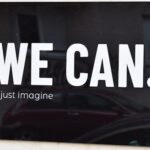
NSW Fair Trading has initiated an investigation into Kids with Cancer Foundation (KwCF) to determine if a breach of Australian Consumer Law, the NSW Charitable Fundraising Act or other relevant legislation has occurred. It follows articles in the Sydney Morning Herald (SMH) which alleges misuse of donations while questioning administration costs and staff pay.
SMH says its investigation shows the charity, in some years, spent a small percentage of its donations directly on families and hospitals. The article claims KwCF has given only 23 per cent ($12.8 million) of its $56 million in “contributions” (income) over the past nine years, falling as low as 9 per cent in 2021.
KwCF claims on its website that “100% of tax deductible donations, fundraising and bequests go to the cause, and all overheads are covered by our lotteries.” Its impact statement also states: “100% of all donations go towards supporting children with cancer and their families.”
KwCF’s latest 2023 financial report is transparent about its fundraising income and costs. The lottery generated well over $4 million in revenue but lottery costs are inherently high (57% – telemarketing and prizes of “cars, holidays, caravans, boats, bikes or even gold bullion”). Fundraising donations are growing and, in contrast, KwCF’s fundraising costs were only 15%.
In most years, direct grants to hospitals and families exceeded donations (see chart below, using ACNC data). But in 2018 (bequest, not a tax deductible donation) and between 2020-22 (Covid) it did not. KwCF CEO Todd Prees told the SMH that Covid and uncertainty impacted on its ability to deliver programs and services, and the charity adopted a “conservative stance” to spending in recent years.

SMH also claims lottery ticket buyers were told by telemarketers that proceeds directly benefit sick children. Prees clarifies the distinction between tax deductible donations and other income such as lottery ticket sales which fund operational support.
“Our ticket purchasers are aware that their ticket purchases directly support the work of Kids with Cancer, work that can only be done via a team of dedicated and purpose-driven staff.”
So the key question is, were all its donations spent on its cause? Let’s look at where the money was spent:
- grants and direct payments to families: exceeded donations, with some exceptions
- employee costs: KwCF impact reports show staff work hard to support children with cancer and they should be paid fairly to attract and reward talent
- telemarketing costs: tele-marketing is costly but creates a bigger stream of income for the cause
- cash reserves: investing surpluses in a cash reserve arguably gives the charity a ‘war chest’ to fund program continuity in tough economic conditions
- overheads: a charity has to invest in its people, systems and future; or risk being less effective in delivering social change.
No evidence was presented that funds were diverted to a donkey sanctuary, or for private benefit. The charity appears to have made a strategic choice to invest in a stronger balance sheet during the pandemic.
The outcome of the investigation will be watched closely by charities. In the meantime, be careful about making really specific claims on your website and fundraising collateral. And communicate and explain your financial strategy to volunteers and supporters.
If you have strong governance, your donors will trust you to fund your cause based on your charity’s evidence-based programs and priorities.




